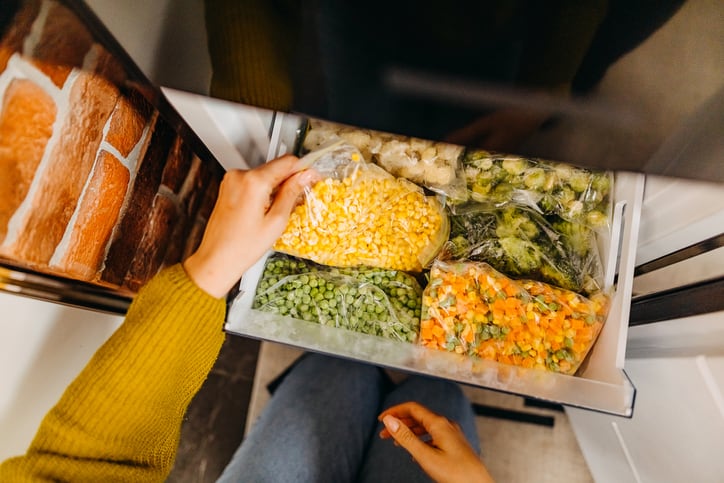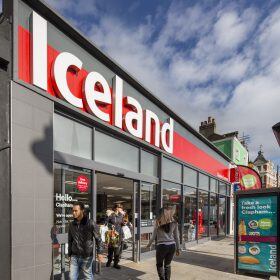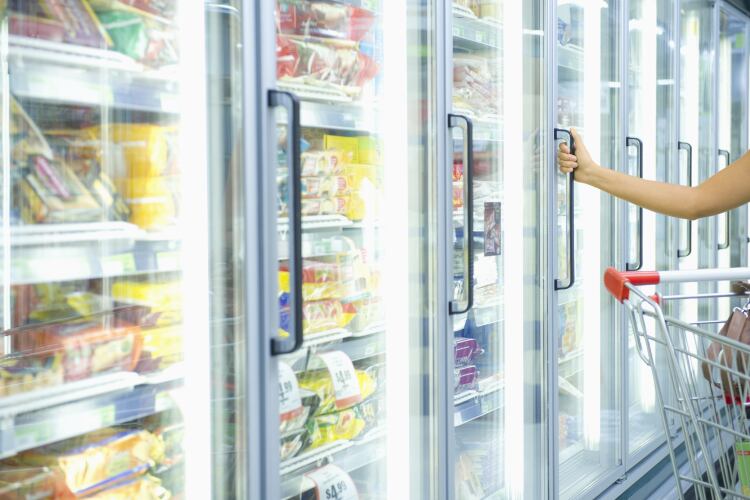Only alcohol has outperformed frozen food since the start of the pandemic, according to the report, which brings together research from Kantar Worldpanel and IGD and features commentary from brands including Birds Eye, Young’s Seafood and Froneri.
The sector is now braced for a host of challenges, however. Average prices have risen by 2.1% over the last 52-week period and it is anticipated that prices will rise further in 2022. “Until recently Every Day Low Pricing and price matching strategies have kept direct inflation at bay in the market,” said IRI Senior Insight Manager Michal Weavis. “But recent data suggests that we have now reached a tipping point where direct price increases are being passed on to the shopper.”
But frozen – naturally cheaper than chilled – should benefit as the economic clouds gather. Birds Eye noted an increase in the number of meal deals that are being offered in the frozen category.
British Frozen Food Federation Chief Executive Richard Harrow pointed out: “In terms of pricing, the frozen category has returned to a form of normality with promotional participation trending back to levels of 2019 in most categories.
“Continued price matching with Aldi is impacting some categories. This is good news for consumers as frozen vegetable prices are down 3.7% in the past year and down 6% since 2019. However, it does put producers under even more pressure at a time of increasing inflation.”
Looming HFSS legislation could have a significant impact on the in-store environment for frozen, especially to categories such as pizza and ice cream, the report added, so navigating this will be essential to the long-term success of the category, it said.
“Accessible and attractive healthy, non-HFSS meal choices, especially for children, are among one of the key Government focusses. As these messages filter to the public, food manufacturers have to be prepared. The need to increase consumption of vegetables, fruits and more healthy and sustainable foods puts frozen food in a strong position to succeed and grow,” said Kate Forbes, Category Director UK at Birds Eye.
Oppo Brothers Ice Cream Managing Director Harry Thuillier noted the fastest growing trend, though not the one with the most shelf space, in ice cream is in ‘better for you’ and ‘better for the planet’ indulgence. The coming HFSS regulations promise to give consumers “more balanced options”, he said.
'A healthy, sustainable and convenient meal option which also helps to reduce food waste'
As frozen food can lead to less household waste, the sector is also promoting its sustainability credentials in an effort to connect with the shifting concerns of consumers. The majority of shoppers (62%) are now influenced in their food and drink purchases by sustainability issues, claimed the report, and frozen food, with its proven ability to cut food waste, is “perfectly positioned to help”.
“Just as frozen veg can play a role in ensuring that children eat the correct amount of vegetables to grow up healthily, the wider frozen food sector can play a key role in ensuring that Britain hits its sustainability targets and shoppers of all ages live healthier lives,” added Strong Roots UK Managing Director Emma Curtis.
Nevertheless, the manufacturing, storing and transporting of frozen goods is an energy intensive process, the report highlighted, that needs immediate attention if businesses are going to transition to Net Zero.
Frozen food “couldn’t be more on point than it is right now”, said Charles Banks Co-Founder, The Food People. “Considering the forces shaping behaviour – from the rising sustainability agenda, the importance of value in an era of price inflation to supply chain availability inconsistencies and the continued growth in the spending power of younger Millennials and Generation Z.”
Harrow added: “After two years of disruption, the retail market is returning to pre-pandemic normal, but frozen has attracted over 400,000 more shoppers in the last two years. The retail frozen food market is now worth £7.1bn and has added nearly £850m worth of sales since 2019 that’s value growth of +13.5% and volume growth of +9.2%. With the total grocery market broadly flat, frozen sales have significantly outperformed the market.
“I continue to feel very optimistic about our industry. The quality we provide, the innovation we deliver, all in a convenient form that avoids food waste is a very positive message that we all need to communicate at every opportunity.”




